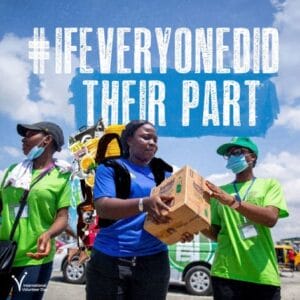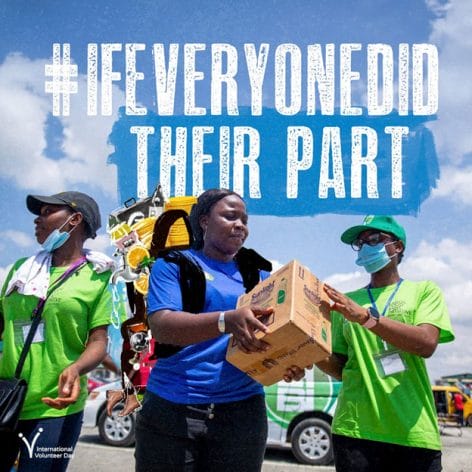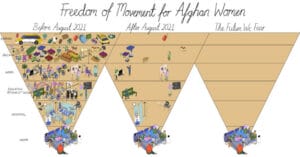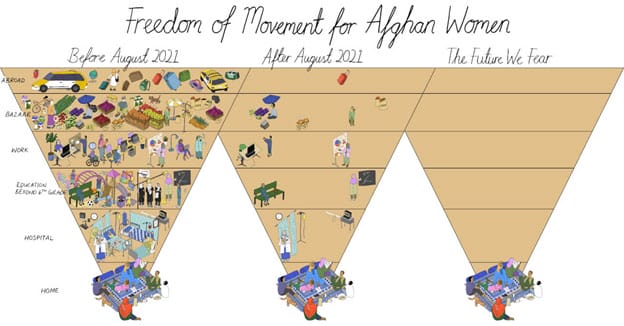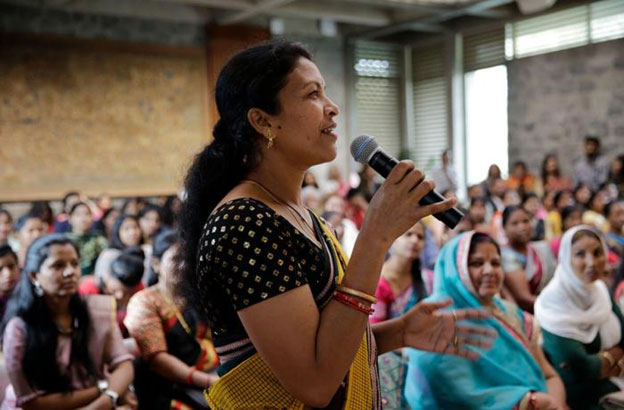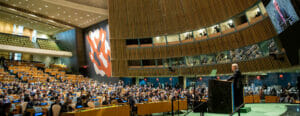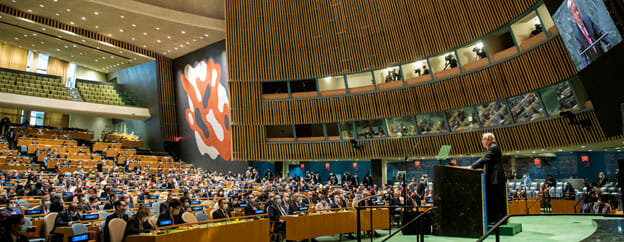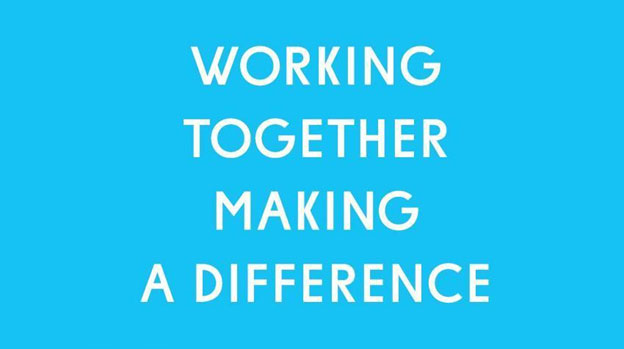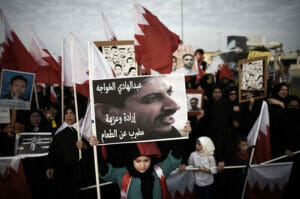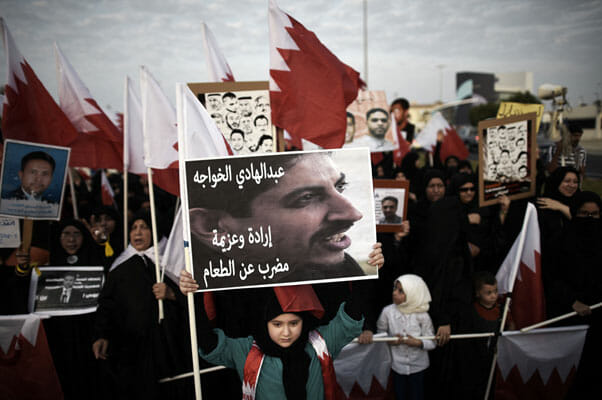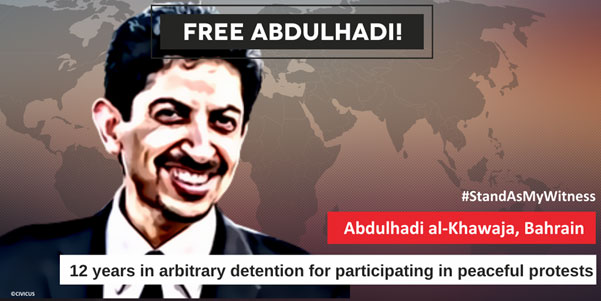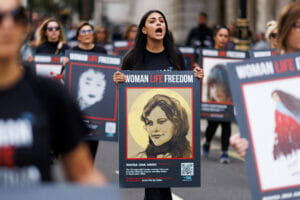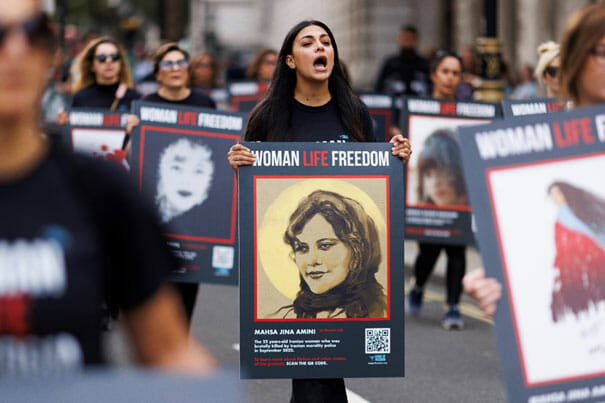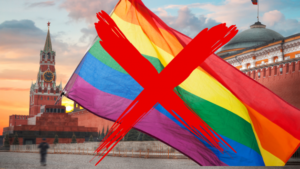
Civil Society, Crime & Justice, Democracy, Editors’ Choice, Europe, Featured, Freedom of Expression, Gender, Headlines, Human Rights, LGBTQ, TerraViva United Nations
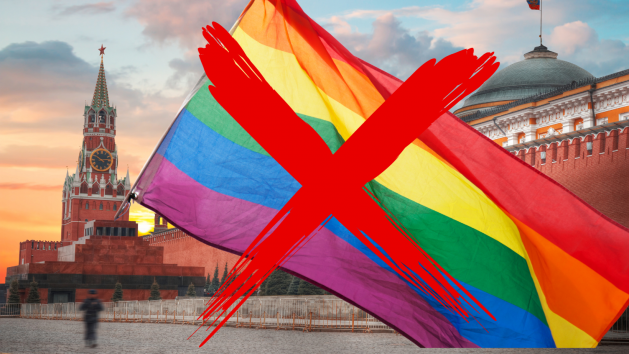
The Russian Supreme Court ruling making the “international LGBT movement” an extremist organization will come into effect on January 9, 2024. Graphic: IPS
– “This is what you get after ten years of state propaganda and brainwashing,” says Anatolii*.
The Moscow-based LGBT rights activist’s ire is directed at a recent ruling by Russia’s Supreme Court declaring the “international LGBT movement” an extremist organization.
Details of the ruling, made on November 30 after a closed hearing, have yet to be made public—it will not be enforced until January 9, 2024, and until then, no one is likely to be any the wiser about its practical implementation, says Anatolii.
But its vagueness—critics point out that no “international LGBT movement” exists as an organization—has already fueled fears that it could lead to the arbitrary prosecution of anyone involved in any activities supporting the LGBT community.
And the potential punishments for such support are draconian, with participating in or financing an extremist organization carrying a maximum 12-year prison sentence under Russian law.
In the weeks since the ruling was announced, fear has spread among LGBT people.
“Russian queers are really scared,” Anatolii tells IPS.
But while fearful, many see it as the latest, if potentially the most drastic, act in a decade-long campaign by the Kremlin to marginalise and vilify the LGBT community in the country through legislation and political rhetoric.
The first legislative attack on the community came in 2013, not long after Vladimir Putin had returned to power as President, when a law came into effect banning “the propaganda of non-traditional sexual relations” to anyone under the age of 18.
This was followed by increasingly homophobic political discourse, and Kremlin campaigns—prominently backed by the country’s powerful Orthodox Church—promoting ‘traditional family values’ in society and casting LGBT activism as a product of the degenerate West and a threat to Russian identity.
Then in 2022, the ban on “LGBT propaganda” was extended to cover all public information or activities supporting LGBT rights or displaying non-heterosexual orientation and implicitly linked the LGBT community with paedophilia—the law refers to the “propaganda of nontraditional sexual relations and/or preferences, paedophilia, and sex change.”
A ban on same sex marriage has also been written into the constitution; authorities have labelled a number of LGBT organizations as “foreign agents,” stigmatizing them and forcing them to adhere to a set of funding and bureaucratic requirements that can be liquidating, and earlier this year a law was passed banning transgender people officially or medically changing their gender.
With each new piece of pernicious legislation, and an accompanying rise in intensity and normalization of homophobic hate speech from politicians, the LGBT community has suffered, its members say.
“The Supreme Court ruling is just a continuation of Russia’s homophobic policies. The amount of physical violence against LGBT people has been growing in Russia for 10 years. After each such law, it intensifies even more noticeably,” Yaroslav Rasputin, editor at the Russian-language LGBT website www.parniplus.com, told IPS.
“We expect homophobes will feel justified in attacking LGBT people [after the ruling], both through cyberbullying and physical assaults,” he added.
Members of the LGBT community and rights campaigners who spoke to IPS said there was a desperate fear among many LGBT people now. While the threat of physical violence was often felt as being very real, there was also a crippling concern over the uncertainty many would now face in their daily activities.
Many do not know what will constitute “support” for the LGBT community. Some are trawling through years of social media records, deleting any possible positive references to LGBT or reposted messages on the topic for fear of the information being used against them by authorities.
And there are worries that simply being openly gay could somehow be interpreted as extremism.
Lawyers who have advised LGBT people and groups in the past say that it will be much easier for security forces to initiate and prosecute cases of extremism than propaganda, as the latter is more difficult to prove.
“Although the government says these ‘repressions’ concern only political activists, in reality this is not the case. We know this from previous homophobic laws. Sometimes people spontaneously get caught for who they are. No one knows when it will be safe to come out and when not,” said Rasputin.
Anatolii said the organisation he works for has been inundated with calls from people “in panic and despair” over the ruling, many of whom are looking for help to leave the country.
LGBT groups outside Russia have also reported a huge uptick in calls from people trying to find safe passage to other countries.
“We have seen a dramatic increase in the number of people contacting us, perhaps three or four times more. LGBT people in Russia are really worried about the ruling; they don’t know what might be defined as extremist,” Aleksandr Kochekovskii from the Berlin-based organisation Quarteera e. V, which helps LGBT refugees and migrants to arrive and find their way around Germany, told IPS.
“Unfortunately, a lot of people will leave Russia because of this ruling because they feel in danger. There is a ubiquitous psychological pressure on LGBT people in Russia now,” he added.
Even some openly gay figures in Russia have publicly acknowledged that LGBT people may be forced to flee the country.
“This is real repression. There is panic in Russia’s LGBT community. People are emigrating urgently. The actual word we’re using is evacuation. We’re having to evacuate from our own country. It’s terrible,” Sergei Troshin, a gay municipal deputy in St Petersburg, told the BBC.
But others warn the Kremlin may be looking to use the ruling to crack down on the community as a whole as much as individuals.
“At this point, the state’s main goal is to erase the LGBT community from society and [the country’s] history,” Mikhail*, a Russian LGBT activist who recently left the country and now works for a pan-European NGO campaigning for minority health rights, told IPS. “It is hard to imagine how many organisations defending the rights of LGBT people will be able to exist in Russia any more since such support is [considered to be] advocating terrorism,” he added.
Some such organisations have already decided to close in the wake of the ruling. The Russian LGBT Sports Federation announced it had stopped its activities, and one of the most prominent LGBT groups in the country, Delo, which provided legal assistance to people in the community, also closed following the court decision.
But other mainstays of the LGBT community are also shutting their doors. The owners of one of the oldest gay clubs in Russia, “Central Station” in St Petersburg, said they had been forced to close the club after the site’s owners refused to rent to them. Its closure came as other gay clubs and bars in Moscow were raided by police just 24 hours after the Supreme Court ruling. People’s names taken, and ID documents copied.
Although police said the raids were part of anti-drug operations, LGBT activists said they could see the true purpose behind them.
“The state has made it very clear that it is ready to use the apparatus of force against LGBT people in Russia,” said Mikhail.
But the ruling is also expected to have effects for LGBT people beyond their interactions with other individuals or groups within the community.
Accessing specific healthcare services, for instance, seems likely to become more difficult. Some practitioners, such as psychiatrists and psychologists, have until now openly indicated their services as LGBT-friendly. But according to some Russian media reports, it is thought many will no longer be able or willing to do so, and that others may simply stop providing their services to LGBT people altogether out of fear of repercussions.
Experts warn that without qualified help, the risks of suicide, PTSD, and the development of other mental disorders will rise, especially among children, something that was seen after the first law banning the promotion of LGBT to minors was passed in 2013.
International rights groups have condemned the court ruling and urged other countries to provide a safe haven for those forced to flee Russia and to support Russian LGBT activists working both inside and outside the country.
Whatever the effects of the law eventually are once it is fully implemented, it looks unlikely there will be any improvement for the LGBT community in the near future.
Activists predict anti-LGBT political rhetoric will probably only intensify as President Putin looks to cement support among voters ahead of elections in March, and as the Kremlin tries to draw the public’s attention away from the country’s problems, not least those connected to the war raging in Ukraine.
“It’s easier to create an artificial enemy than to struggle with the real problems the war has caused. The LGBT+ community in Russia is a kind of collective scapegoat, taking a punch and feeling the people’s wrath,” said Anatolii.
Others say that as the war drags on, repression of the LGBT community may start being repeated among other minority groups.
“Everything the Kremlin does in Russia is an attempt to divert people’s attention from the war. ‘Othering’ is typical for all dictatorial regimes. I am quite sure that soon [the Kremlin] will start targeting other groups like migrants and foreigners,” Nikolay Lunchenkov, LGBT Health Coordinator for the Eurasian Coalition on Health, Rights, Gender, and Sexual Diversity NGO, which works with the LGBT community in Russia, told IPS.
Note: *Names have been changed for safety reasons.
IPS UN Bureau Report

